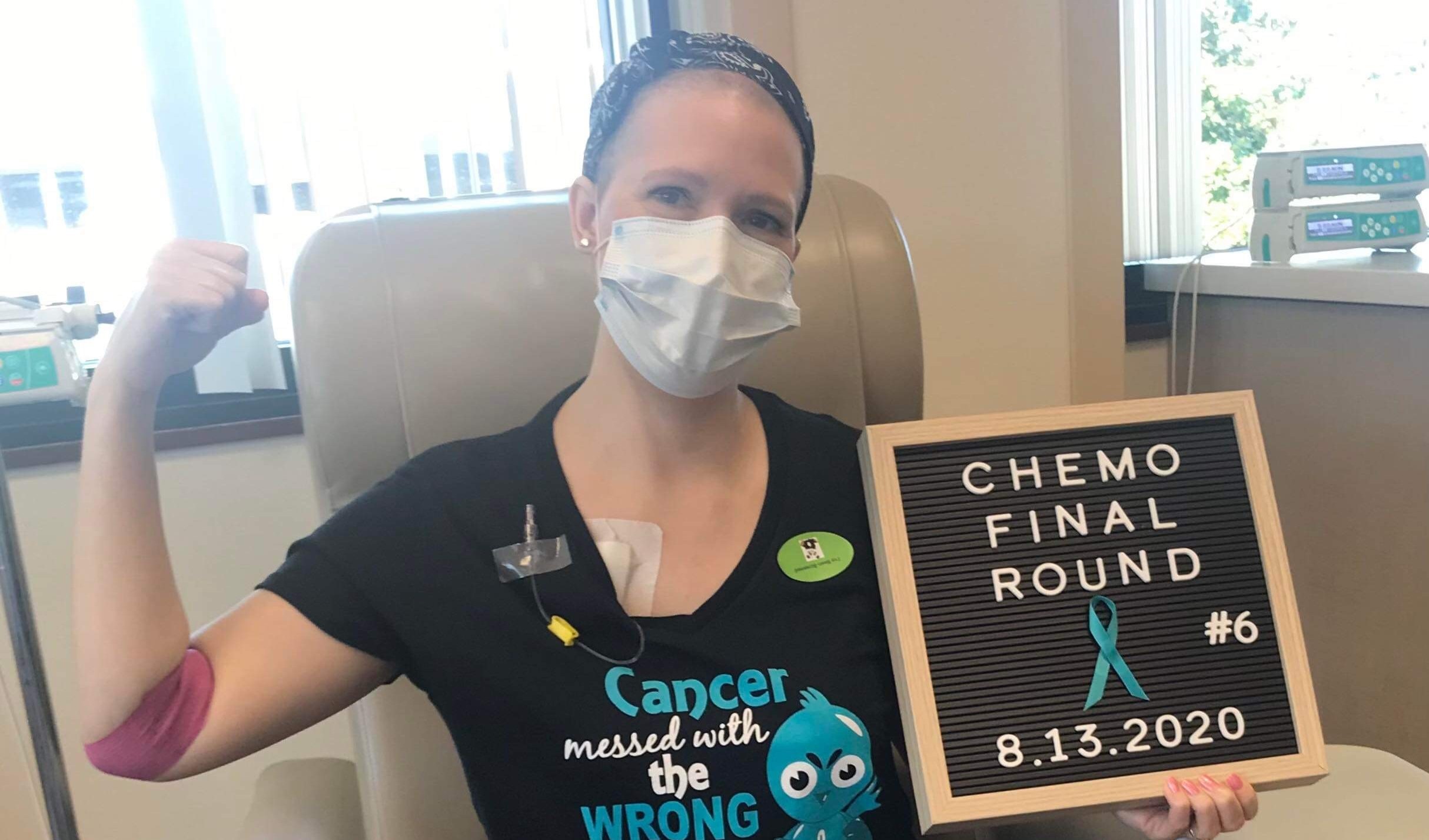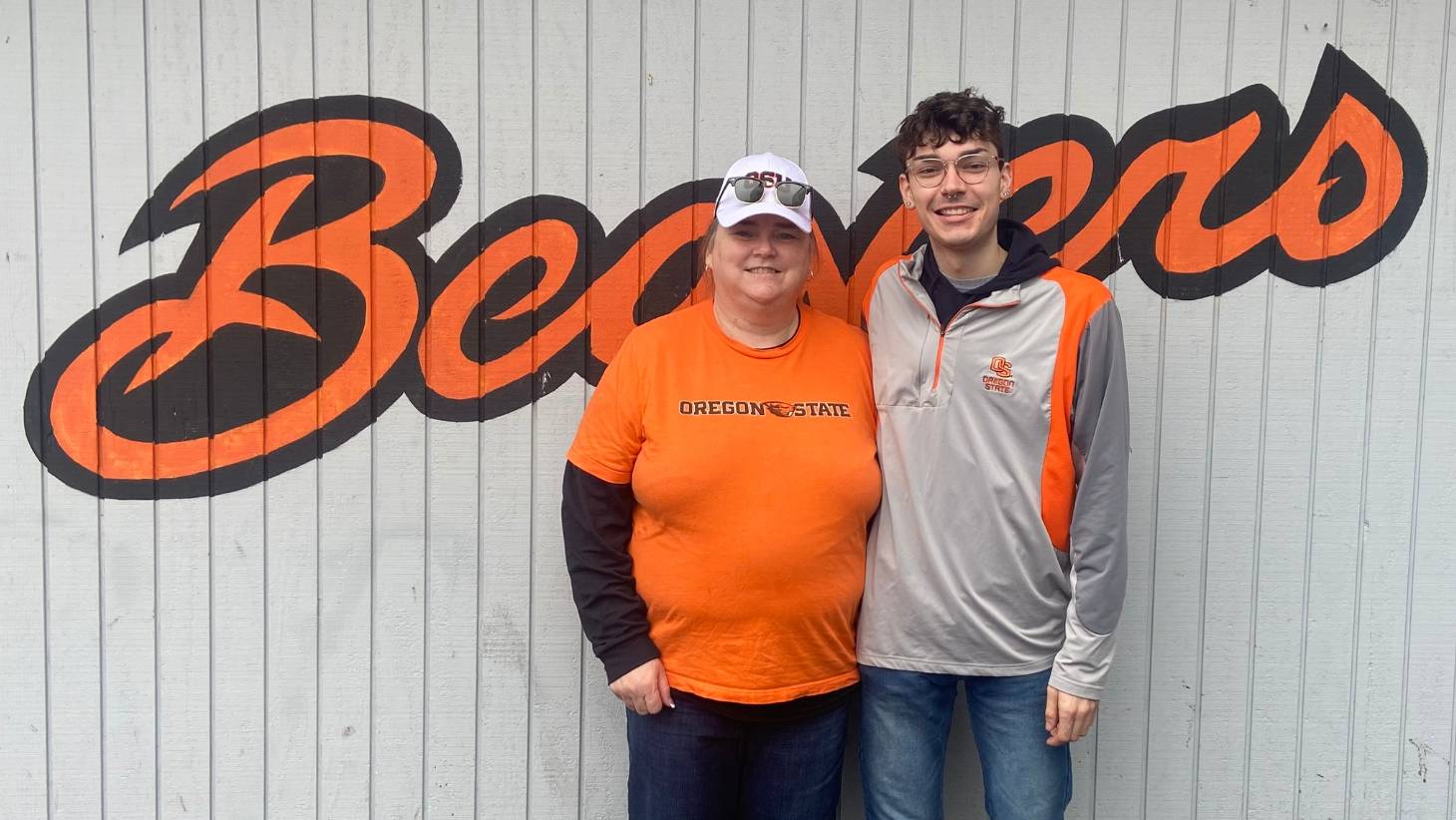When Viki Berry went to see her doctor after discovering a small lump on her hip, she received some unexpected news: She has non-Hodgkin lymphoma, a type of blood cancer. It’s a moment she will never forget.
“I kind of left the room, mentally,” Viki recalls. “I was just gone, because I was thinking, ‘How did I get cancer? What did I do?'”
Initial scans revealed Viki had a growth in her lower abdomen and one on each side of her chest. Instead of beginning treatment, Viki initially chose to have her oncologist, Dr. Jeff Sharman monitor her condition, also known as active surveillance.
After monitoring the cancer for about a year, the tumor in Viki’s abdomen began to grow, so she decided to begin treatment with the drug Rituxan (rituximab).
When it became clear that the medication wasn’t working, Dr. Sharman suggested a different course of action. A year ago, Viki became one of the first people in the country to enroll in a phase I clinical trial of a newly developed targeted therapy. Every 21 days, she receives a dose of the medication. After Viki began taking the drug, her tumors shrank. While her most recent scans show the tumors have stopped shrinking, they are also not growing.
With advancements in research in the last 10 years, certain types of cancers are becoming more manageable, making it possible for patients to live longer, with the development of targeted therapies—treatments that are tailored to an individual’s specific type of cancer.
“The focus of cancer treatment has shifted,” says WVCI clinical research coordinator Betty Goracke Olguin. “Cancer research is asking, ‘What is unique about this particular cancer? What is making the cancer grow aggressively, or not die when it’s supposed to?’ These answers are used to create treatments to target those particular processes.”
“When people hear that a friend or family member is on a clinical trial, it doesn’t mean they are out of options and there’s no longer hope. More than likely they’re getting a smarter, more science-driven treatment, which is exciting,” says Goracke-Olguin. “Cancer is a very wily, smart biological process, so when we can outsmart it, it feels really good.”
Willamette Valley Cancer Institute and Research Center is a member of the US Oncology Network, one of the nation’s largest research networks. Because of that partnership, WVCI can offer patients access to national and global clinical trials.
In addition to participating in a clinical trial, Viki has sought out other ways to take care of herself, both physically and emotionally, by attending a regular support group and exercising daily. She wants other patients to know what she’s learned: You are your best advocate.
“You are the one who is in control of your health. You are the one who makes the decisions about what you want to do. And that’s one of the things I’ve become through this experience, a participant in my health.”



